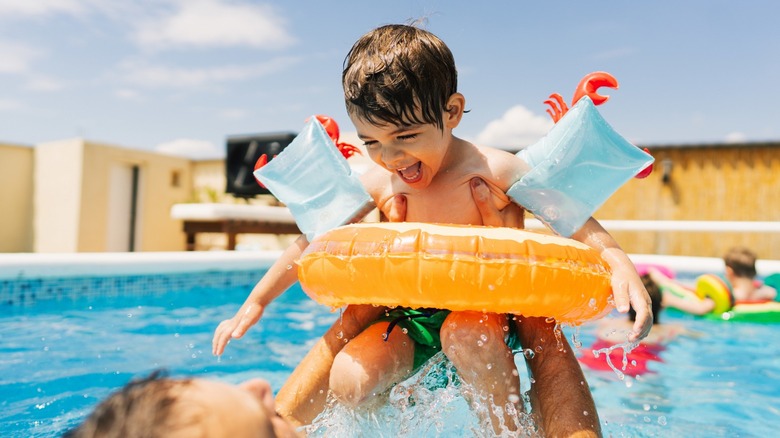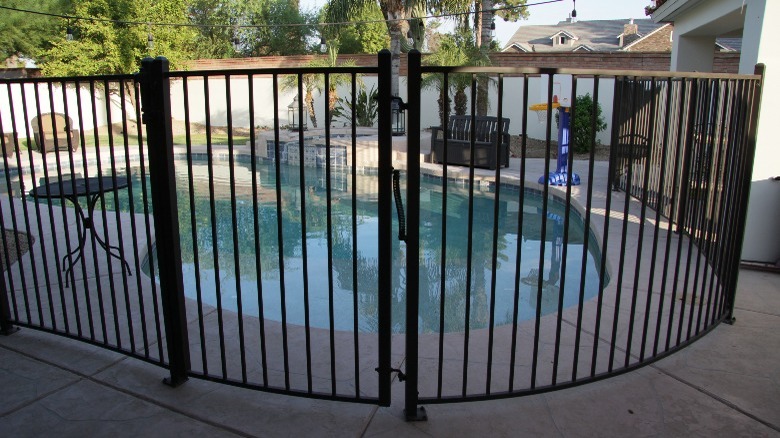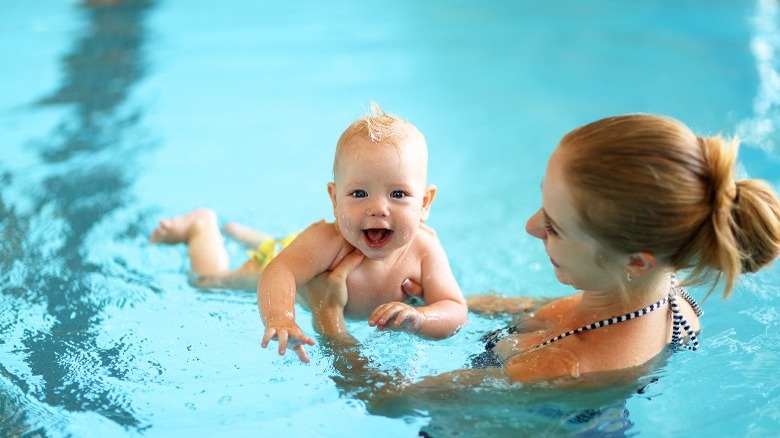The Best Ways To Ensure A Safe Pool Environment With Children
Summer fun is here again, and with the warm weather comes swimming and pool safety. Being a homeowner with a swimming pool is a huge responsibility. When you have children around water, it's important to follow certain specific safety precautions to the letter. Because there is such a significant risk of potential danger, we've gathered this pertinent information for you on the best ways to ensure a safe pool environment when there are children involved.
Even in the United States, drowning kills more children ages one to four than any other cause besides birth defects. For these same preschool-age kids, 87% of deaths by drowning happen at home, in a swimming pool or a hot tub. You can see why it's so important to have strict safety rules in place, and why education and dedication are both equally essential. Teaching infants to swim, even from birth, makes perfect sense. Let's dive in head first to tackle this wet work, shall we?
Fence or barrier requirements for homeowners
The first thing to understand is that every state or locality is different, so it's very important for you to check the specific legal requirements for your area. One of the basic laws regarding pools will involve a fence or barrier requirement. For example, in Arizona where swimming pools are common, the fence requirement is the same for in-ground or above-ground pools. It must be at least five feet tall with no openings four feet in width or more. The gate must completely surround the pool and have a lock on it. Currently, nearly every state in the U.S. has some type of a fence law in place for homeowners with residential swimming pools.
It's suggested that the gate should be self-latching and self-locking, and you'll need to keep in mind the fact that you not only need to protect your invited guests, but also any uninvited ones. So, you will need measures that protect anyone else who might inadvertently encounter harm on your property, to ensure it would be through no fault of your own. Having a fence that locks around the entire pool is going to be the most important safety measure of all. Additionally, always winterize your pool and seal it with a pool cover when not in use.
Childproofing your pool
Of course, there are many other important safety guidelines to follow for keeping a safe pool environment for kids. A child should always be accompanied by an adult or buddy who swims well. There should be no running or horseplay and no glass around the pool area. Anyone under 18 who can't swim must wear a life jacket inside the fence. Once you decide on the rules, you should type them up and print them out, laminate them, and post them outside where they can clearly be seen by pool guests.
Safety drain covers should be installed to help prevent accidental drowning. Another important addition is going to be purchasing a pool alarm, or even a fence alarm. This simple trick can ultimately save little lives, and there are a few different types to choose from. Talk to a local alarm company to find out what's available and makes sense for you. Make sure you remove any tripping hazards from around the water, and any enticing floatation devices and toys should be removed when not in use. Make sure you teach your children to swim or get them swimming lessons as young as possible. This will ensure the safest environment around the pool for the kids, all summer long


